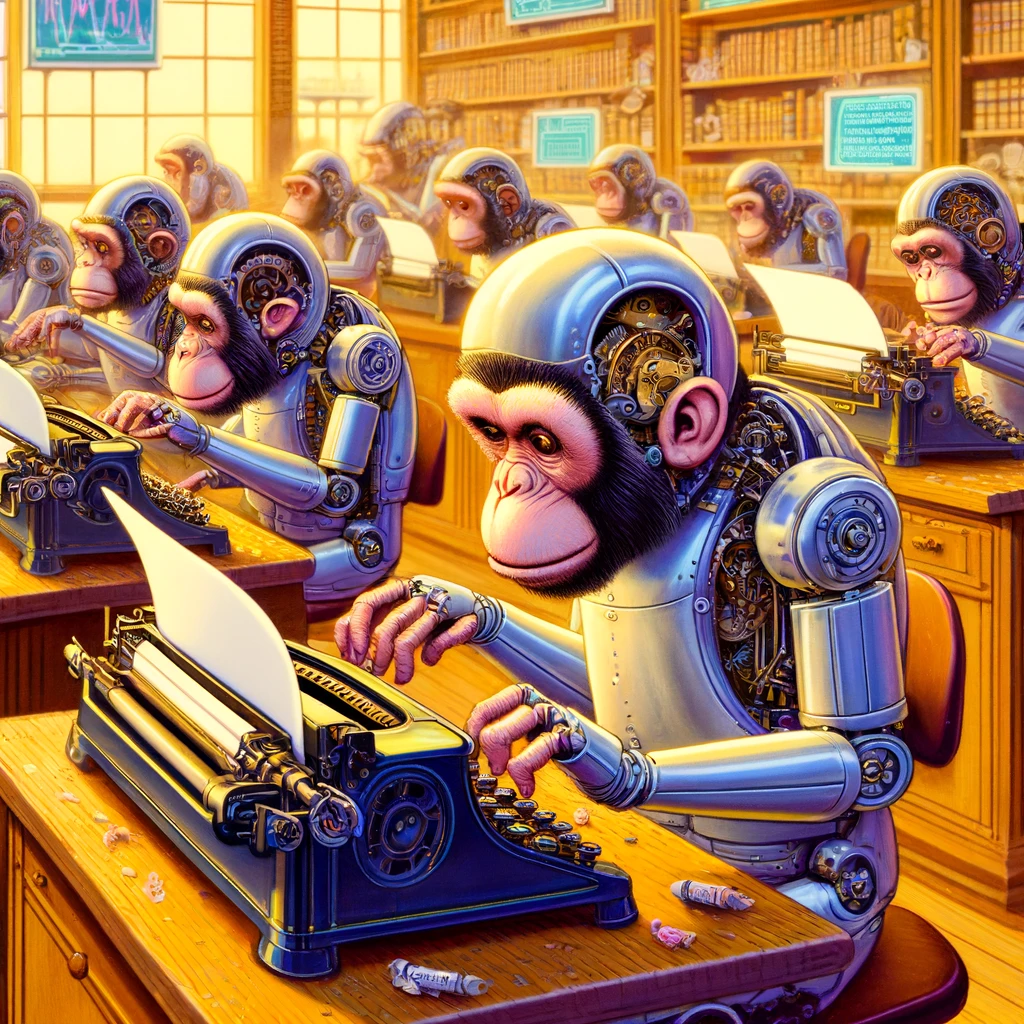
Fallacy Checker
In the ceaseless quest for truth, where the validity and reliability of information are paramount, the lessons of sceptics whisper in our ears, urging us to continuously question and verify the truth of our assertions. This shenanigan explores the lofty notion that strict adherence to logical principles and the avoidance of fallacies can establish factual statements and spur the development of tools that enhance this process. Here, we discuss the potential implementation of such tools in everyday applications, their impact on social media discourse, and their use in validating mathematical proofs.
Climbing the Ladder of Logic
The hypothesis that dodging fallacies could exclusively generate factual statements presents a compelling narrative—a seductive siren song. Imagine a document or database akin to the mythical Tablets of Destiny, where nothing false can ever be written. Now, stop imagining because I built a prototype. This tool acts as a foundational framework, allowing users to cross-reference and verify their assertions against recognised fallacies, presumably ensuring a higher degree of truthfulness.
Check out Fallacy Checker!
Computational Tools in Logical Evaluation
Venture with me beyond the academic and into the pragmatic. Envision deploying this codified knowledge system as a computational tool across platforms or integrating it into social media to evaluate public statements' truthfulness. Such a tool could serve as "bot police," automatically flagging content that falls into logical fallacies. Promoting informed and rational discourse online—wouldn’t that be nice? Moreover, this meshes well with existing technologies like the LEAN software, which provides a structured environment
where mathematical proofs are checked for correctness. Consider all the Twitter (X) feeds, just brimming with pure intellect, codified proof engines collecting them and building upon each other to build the ivory tower of logic.
Monkeys and Typewriters
Why do we need people anyway? Let's expand on using LEAN by integrating GPT models to enhance the capability to generate and verify new knowledge. If trained within a logically consistent framework, with sufficient randomness, these models could lead to the discovery of novel mathematical concepts or solutions to existing problems. The endless loop of pseudo-random thought and consistent logical checks could automate the creative process, yielding new, rigorously tested ideas that might find practical applications—or end up as intellectual curiosities gathering dust on the virtual shelves of academia.

The Folly of Logical Codification
We often turn to science and logic as our saviours in our relentless pursuit of certainty and control over the natural and intellectual realms. Yet, here I am, about to critique the belief in the omnipotence of logical codification and computational tools. We draw upon the philosophical insights of Kant's "Critique of Pure Reason" and Heidegger’s reflections on technology and fear, arguing that this drive toward absolute logical rigour and computational validation is fundamentally limited and reflects a more profound existential anxiety characteristic of our era.
Kant extensively discusses the limits of human understanding and the dangers of overstepping these bounds. While reason is a powerful tool for navigating the world, it inherently possesses boundaries it cannot transcend. Attempts to codify all knowledge into a flawless logical system are doomed to fail. Such endeavours are prime examples of reason overreaching itself, leading to what he terms "transcendental illusion"—the mistaken belief that our rational faculties can grasp and articulate all aspects of reality without error. There’s also this slight catch: we mustn't forget the practical issues illustrated by Gödel's Incompleteness Theorem. It reminds us that in any sufficiently robust logical system, there are propositions that cannot be proven or disproven within the system's own rules. Heidegger offers a critique that complements Kant’s scepticism. He discusses the modern era’s anxiety about uncertainty and the unknown, leading to a desperate grasp of science and technology to conquer these fears. This obsession ultimately leads to a detachment from being and a blindness to the essence of our humanity, which cannot be fully captured or regulated by logical systems or computational algorithms.
For those unfamiliar with the Gödel's Incompleteness Theorem, here's a quick video to get you up to speed:
The Idolatry of Science
The worship of science and faith in computational tools to deliver us into a realm of pure truth and certainty are symptomatic of a more profound existential crisis. This crisis manifests as a fear of the unknown and the unpredictable, driving society to cling to science as a pillar of stability and truth. However, this idolatry overlooks the inherent limitations and imperfections of human-designed systems. No matter how sophisticated a framework might be, it will always be constrained by human knowledge and perspective limitations. But then again, I am typing this on processed sand with electricity running through it, so we got some pretty ingenious things out of all that reason, which I argued was supposed to get us nowhere.
So, dear reader, having now navigated this maze of ideas, what does it all mean? After all this lofty discourse, draped in the philosophical finery of Kant and Heidegger, sprinkled with references to a few texts that I've managed to skim through (I am not a philosopher or an intellectual, just a regular Joe who loves his shenanigans), one might indeed wonder—what indeed? If you were hoping for a neatly packaged conclusion, a crisp summary that ties all these threads into a bow, then perhaps you've missed the point—or maybe that's the point? As you've ventured through this labyrinth of thought, guided (or misguided) by sophistically spun narratives, the real takeaway might just be this: clarity is overrated. Or maybe it isn’t—who am I to decide? I haven’t decided one way or the other (I am, after all, a Daoist). Regardless, I’m sure I’ve wasted a few brilliant folks' time as they trudged through all this stuff I wrote, or have I?
Isn’t relativism a beautiful thing, indeed?
Off you go, since this time my shenanigan was you.
P.S. Google came up with Alpha Proof which does exactly the same thing.